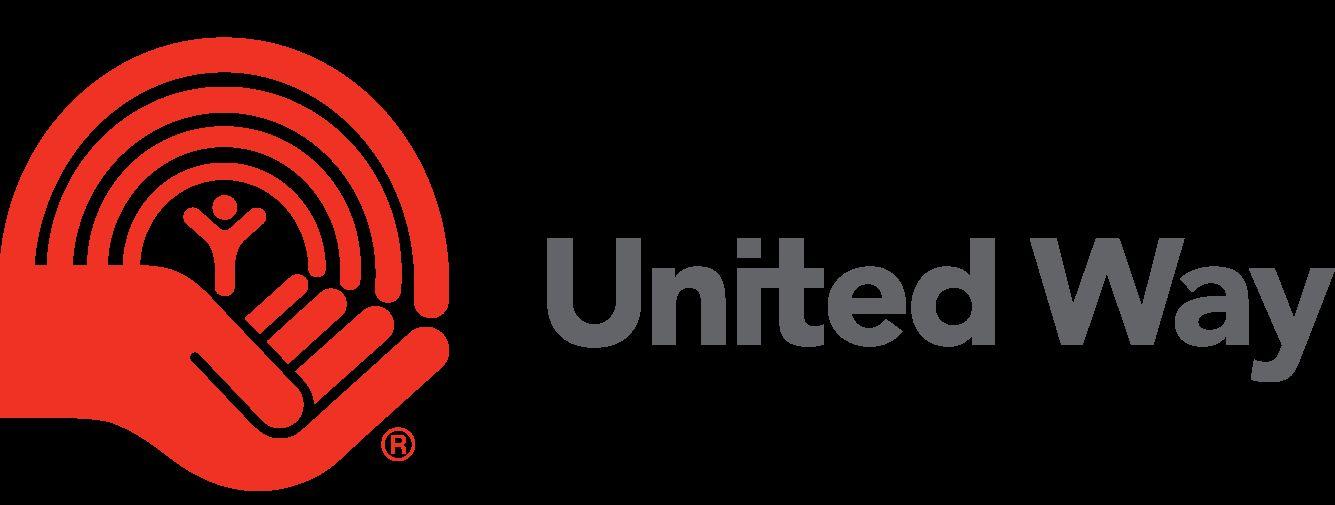OurCareCommunity Roundtables

Asummaryof10conversationswith equity-deservingcommunitiesacross Canadaaboutimprovingprimarycare


Asummaryof10conversationswith equity-deservingcommunitiesacross Canadaaboutimprovingprimarycare
BetweenJuneandDecember2023,OurCarehostedconversations withpeoplefromsomeofthemostequity-deservingcommunities inCanada–peoplewhohavehistoricallyhadpooraccessto primarycare,whosevoicesaretoooftenleftoutofpublic consultationsbutwhoalsohavestrength,wisdomandinnovative ideasabouthowtoimprovetheircollectivewell-being.
Weheld10CommunityRoundtables,twoeachinBritishColumbia, Manitoba,Ontario,QuebecandNovaScotia.
Collectively,wemetwith192peoplefromacrossthecountry includingFirstNations,InuitandMétis(FNIM)peoples;membersof theAfrican,CaribbeanandBlackcommunities;immigrants,refugee claimants,migrantworkersandothernewcomers;peoplewith disabilities;andmembersoftheLGBTQIA+community.
Thisexecutivesummaryhighlightscommonthemesfromthe OurCareCommunityRoundtables.Fullreportsfromeachofthe roundtablesareavailableatOurCare.ca.
TheCommunityRoundtablesarethethirdphaseofOurCare,anational conversationwitheverydaypeopleaboutthefutureofprimarycarein Canada.OurCareisledbyDr.TaraKiran,afamilydoctorandrenowned primarycareresearcherbasedatMAPCentreforUrbanHealthSolutions,St. Michael’sHospital,UnityHealthTorontoandtheUniversityofToronto.
TheOurCareCommunityRoundtableswereorganizedwiththehelp ofcommunityorganizationsthathaddeeproots,strong relationshipsandtrustwiththepeopletheyserved.Theseproject partnerscollaboratedwiththeOurCareteamtorecruitparticipants andorganizeandhosteachoftheRoundtables.Eachcollaboration wasunique,withprojectpartnershelpingshapetheRoundtable designandlogistics.
Eachconversationwasroughlysixhours,sometimesbrokenupinto twodays,usuallyinpersonthoughsometimesvirtual.The conversationwasoftenfacilitatedinmultiplelanguages.For example,thenewcomerroundtableinBritishColumbiawas simultaneouslytranslatedinfivelanguages:English,Tigrinya, Spanish,Dari,andArabic.Duringtheirtimetogether,participants learnedaboutprimarycare,discussedbarriersandfacilitatorsto careandproposedideasforchange.Thefollowingsectionsoutline therecurringanddistinctperspectivesacrosstheRoundtables.

Province Community LanguagesSpoken Partner
British Columbia PeopleLivingwith Disabilities
Refugee,Migrant Workers,andNewcomers
English
English,Tigrinya*, Farsi-Darsi*,Arabic*,& Spanish*
Manitoba IndigenousYouth English
Refugee,Migrant Workers,andNewcomers
Ontario FirstNations,Inuitand MétisRelativeslivingon UrbanandRelated Homelands
African,Caribbean,and BlackCommunities
English,Arabic*,& Ukrainian*
English





English&French




Quebec Lesbian,Gay,Bi,Trans, Queer,Intersex,Asexual+ (LGBTQIA+)Migrants
Low-IncomeResidents, Newcomers,andAsylum Seekers
NovaScotia RefugeeClaimants
AfricanNovaScotians
English,French,Arabic, &Spanish
English&French


English,Spanish*,& Haitian-Creole*
English





Racismandotherformsofdiscriminationarecommonexperiences: Discrimination,bothstructuralandindividual,wasaconsistenttheme acrossall10roundtables.Thisincludesracism-anti-Black, anti-Indigenous,andotherformsofracialprejudice–aswellas transphobia,xenophobia,anddiscriminationrelatedtodisabilities. Discriminationerodespatients'wellbeingandconfidenceandfosters distrustinhealthcaresettings.Manyparticipantsdescribedhowracism anddiscriminationledtoreluctancetoseekcarewhenneeded.

IndigenousModelsofCareareculturallydeterminedandhavealways worked:IndigenousModelsofCarehavebeeneffectiveinimprovingthe healthandwell-beingofdiverseIndigenouscommunities.Byprioritizing thedeliveryofwholistichealthsupport,addressingallfacetsofwell-being encompassingmental,emotional,spiritual,andphysicalcarethese modelsfosterdeeperconnectionswithclientsandcommunities.The emphasisonbridgingculturalgapsensuresthathealthcareistailoredto acknowledgeandrespecttheuniqueneedsofFNIMclientsand communities.Moreover,theinclusionofElders,KnowledgeKeepers, communityadvisoryboards,andtheprovisionofculturallyrelevantcare createaspacethatisbothinclusiveandresponsivetothediverse traditionsandculturesofIndigenousnations.
Expandthehealthworkforcetoreflectthediversityofthecommunity: ThereisaneedtoexpandHumanHealthResourcestoreflectthediversity ofthepopulationsservedandrespectIndigenousself-determination.In additiontoredressinginstancesofdiscriminationandhistoricalinjustice, representationinthehealthworkforcewascitedasawaytobuildtrustwith equity-deservingcommunitiesandensureculturallysafe,highquality care.



Languagebarriersareasignificantchallengeinreceivinghigh-quality care:Miscommunicationandmisunderstandingbetweenpatientsand primarycareclinicianscontributestonegativeexperienceswiththehealth caresystem.Aninabilitytoaccessinformationandcareinresidents’ primarylanguagewascitedfrequentlyasachallengethaturgentlyneedsto beaddressed.

Leveraginginternationalexperienceandlearningfrombestpractices: Participantsspokeatlengthofthebarriersnewcomersfacewhentryingto usetheirskillsandtrainingintheCanadianhealthcaresystem.Thecurrent systemtakestoolongandmakesittoodifficultforinternationallytrained healthprofessionalstopracticehere.Barrierstopursuingmedicaleducation inCanadaincludehighcostsoftrainingandrestrictionsonattending post-secondaryduetoresidencystatus.Participantsfeltthesebarriers resultedinawasteoftalentandresourcesthatcouldaddressgapsinhealth humanresourcesandcontributetodiversifyingthefield.Theroundtables alsodiscussedthebenefitsoflearningfrombestpracticesfromother countries,withmanybelievingthatadaptingsuccessfulstrategiestothe Canadiancontextwouldhelpimproveaccesstocare.
Socialdeterminantsofhealthandwell-beingneedtobeconsideredin care:Costofliving,housing,andmentalhealthwereraisedconsistentlyas keycontributorstopeople’shealthandwellbeing.Manyparticipantsalso describedhavingdifficultyaffordingnecessaryprescriptionmedications, emergencycare,andmedicalequipment.Theintersectionofgender,race, spokenlanguage,andresidencystatusaddedcompoundinglayers,each impactingaperson’sabilitytoaccesscareandtheirwell-being.Formany thereisa“disconnectbetweentheperceptionofCanadaasacountrywith universalhealthcareandthereality.”



Empoweringindividualsandcommunitiesisapartofthesolution: Participantsexpressedastrongdesiretoplayanactiveroleintheir wellnessandcare.Solutionssuchashavingaccesstoone’sown medicalrecordsandhealthwellnesspromotionforyouthwere discussed.Manyparticipantsalsocalledformoreengagementand anongoingroleinthegovernanceofthehealthcaresystemfortheir communities.
Integratedandculturallysafemodelsofcareworkbest:Many participantsspokeofthepositiveexperienceswithcommunityhealth centre-typemodels.Greateraccesstointegratedteams,culturally andlinguisticallyconcordantcare,andrelationshipcenteredcare arejustsomeofthepracticesparticipantsfeltshouldbeprioritized. ThedemandandneedforIndigenousmodelsofcare,andintegrated teambasedmodelsthatactivelysupportandmeetthespecific needsofhistoricallyexcludedpopulationsfaroutstripsthe availability.
FirstNations,InuitandMétisRelativesLivingonUrbanand RelatedHomelands:
● TheimportanceofFNIMclientandcommunity-ledcarethat isresponsivetoandmeetstheuniqueneedsandassetsof FNIMlivinginurbanandrelatedhomelandsthroughthe applicationofIndigenousknowledge,practices,andmodels.
● Currenthealthservicefundingmechanismsarepoorly matchedtothehealthserviceneedsofFNIMpopulations acrossurban,ruralandremotegeographiesanddrawon Westerndefinitionsofhealthcareandsuitabilityoften excludingordevaluingTraditionalHealersandCultural Practitioners
IndigenousYouth:
● Indigenousyouthneedinformationandsupport tonavigatethehealthcaresysteminorderto accesscarefortheirchildren,theirfamiliesand themselves.Indigenousyouthinthefostercare systemspokeofhavinglittlesupportwhen transitioningtoindependentlivingandfew adultstheycouldturntoforadviceandsupport.
● Thebarriersforyouthtogethealthcards, especiallythosestrugglingwithhomelessness orchildwelfare.Youthneedeasieraccessto healthcardsandalsofeelthehealthcards themselvesshouldbeupgradedtobe plastic/ID-stylecardsthataremoredurable andeasytocarry.
African,CaribbeanandBlackCommunities,includingAfrican NovaScotians:
● Impactedbysystemicracisminthehealthcaresystemand individualnegativeexperiences,somemembersfromACB communitiesarehesitanttoseekoutcare.Thiscanhavean intergenerationalimpact,withchildrensometimes repeatingtheirparents'actions.

● AfricanNovaScotianshavehadtorelyoneachotherdueto generationsofgovernmentneglect,andparticipantswere emphaticintheirbeliefthatmanyofthesolutionstobetter healthliewithintheircommunityspaces.

Newcomers,MigrantWorkersandRefugeeClaimants:
● ThelackofknowledgeoftheInterimFederalHealth Programbybothrecipientsofthebenefitandcare providers
● Thepositiveimpactofnewcomerservicesin addressingbarriersoflanguage,lackofservice awareness,andhealth-systemknowledgethrough systemnavigatorsandadvocates
● Thehealthcaresystemdoesnotemphasize prevention.Participantssharedstoriesofclinicians tellingpatientsthattheirsymptomswerenotyet seriousenoughtowarranttreatment,orofnot takingthetimetoproperlyassessordiagnosea complaint.
PeopleLivingwithDisabilities:
● Livingwithdisabilitymeanshavingtonavigate non-accessiblecaresettingsandbecomingan expertinone’sowncare—andateacher
● Peoplewithdisabilitiesfacediscriminationand stereotypinginhealthcarelikemanyother Canadians.Uniquely,theyexperience“gaslighting” or“infantilization”inhealthcaresettingsdueto theirdisabilityofnotbeingbelieved,listenedtoor acknowledgedwhendisabilitiesare“invisible”(e.g., chronicpain,mentalhealth).
LGBTQIA+Communities:
● Experiencesofbeingmisgenderedordenied servicesduetotheirgenderidentity
● Experiencesoftransphobiaandfatphobiafrom providers,andalackofdiversityincareproviders arebarriersthatpreventLGBTQIA+community membersfromseekingcare
AcrosstheRoundtables,participantsoverwhelminglysupportedthe recommendationsofthepreviousProvincialPrioritiesPanels.Inaddition tothoserecommendations,theRoundtablesspecificallyhighlightedthe followingIdeasforChange:
● Addressracismanddiscriminationinthehealthcaresystemby mandatingculturalsafetytraininginallcaresettingsandensuringthe availabilitypublicrecoursemechanismsforpatientswhoexperience racismandmaltreatmentwhenaccessinghealthservices
● Recognizethetraining,certification,andexperienceofinternationally trainedhealthcareworkersbyreducingthebarrierstoaccreditationto practiceinCanada
● Ensureallcareinstitutions,includinghospitalsandclinics,inthecountry areaccessibletothosewithphysicaldisabilitiesandcanprovidecarein arangeoflanguages
● Embracewholisticapproachestohealththatconsiderspirituality, mentalhealth,sexuality,thesocialdeterminantsofhealth,aswellas physicalhealth
● ExpandandbuilduponthebestpracticesofCommunityHealthCentres andotherintegratedcaremodels
● Increasethediversityofthehealthcareworkforcewithdedicated educationalandfinancialassistanceprogramsformembersof historically-excludedcommunities
● Empowerindividualsandcommunitiestoplayaroleinsolutionstocare
● Ensureprogramsincludetrainingonpatientrightsandadvocacy resources
● Adoptanintersectional,gender-affirminglensinthedesignofhealth carespacestoensurethattheyaresafeandaccessibleforall individuals
● Createandpromoteadditionalfinancialaidprogramsforthosewhoare unabletoaffordtheirprescriptionmedication
● Increasetheaccountabilityofhealthcareprofessionalsandphysicians bystandardizingoversightproceduresandrecoursemechanismsfor malpractice
FirstNations,InuitandMétisRelativesLivingonUrbanandRelatedHomelands:
● Implementingamodelofclient-led,community-basedcarethatisresponsiveto andmeetstheuniqueneedsandassetsofFNIMpeoplesacrossurban,ruraland removegeographiesandadvancesIndigenousmodelsofhealthandwellbeing thatapplyIndigenousapproachesandpracticessuchasrelationshipcentered carethatempowersclientstotakeleadershipintheirownhealthandwellbeing
● Advancingongoing,dedicatedfundingforIPHCOsandotherIndigenous-led spacesandservicesthatsupportmental,emotional,andspiritualhealth,in additiontophysicalhealth
IndigenousYouth:
● WorkwithlocalIndigenouscommunitiestoidentifyandappropriatelyengage IndigenousEldersandknowledgekeeperstocontributetraditionalteachingsto medicalschoolcurriculum
● WorkwithIndigenoushealthservicesandIndigenoushealthprovidersacross urban,ruralandremotegeographiestodevelopandimplementpracticumsin Indigenoushealthservicecontexts–thiswillenhanceawarenessofIndigenous worldviews,practices,andlivedrealities
● Revisingpoliciesthatpreventyouthandpeoplewhoareunhousedfromgetting healthcardsandotherformsofidentificationrequiredtoaccessservicesand supports
African,CaribbeanandBlackCommunities,includingAfricanNovaScotians:
● Collaboratewithspacesalreadytrustedbythecommunity,suchaschurches,to expandandpromoteexistingresourcesfortransportationandchildcarefor individualswhentheyseekcare
● IncreasetheamountofBlackcareprofessionalsthroughpost-secondary programsthatexpandinclusiveaccesstoracialized,francophone,andnewcomer studentsinhealthstudies
Newcomers,MigrantWorkersandRefugeeClaimants:
● Offerinformationaboutthehealthcaresystemandhowtonavigateitto newcomers.Thisinformationcouldbeavailablepre-arrivalorimmediatelyupon arrival,andshouldbeavailableinnewcomers’spokenlanguages.
● Addresslackofawarenessandclarityamongcliniciansandresidentsregarding theInterimFederalHealthProgram
PeopleLivingwithDisabilities:
● Createafederaldisabilitybenefitspecificallytosupportthehealthcareneedsof peoplewithdisabilitiesandthepeoplewhocareforthem
● Expandaccesstohomesupportforpeoplewithcognitivedisabilitiesor neurodivergence
LGBTQIA+Communities:
● Adheretoexistinghumanrightslegislationthatprotectsgenderidentityand genderidentity
● Mandatetheinclusionofgender-affirming,anti-oppressive,trauma-informed practicesinthetrainingofallstaffinmedicalsettings,clinicians,andallsupport staff
OurCareisanationalinitiativetoengagethepubliconthefutureofprimarycarein Canada.Over15months,thousandsofpeoplelivinginCanadatoldusabouttheir hopesandprioritiesforcreatinganequitableandsustainablesystemthatdelivers


TheOurCareinitiativehasbeenmadepossiblethroughafinancialcontributionfromHealthCanada,theMaxBell FoundationandEventheOdds(apartnershipbetweenMAPandStaplesCanada).Theviewsexpressedhereindo notnecessarilyrepresenttheviewsofthefunders.